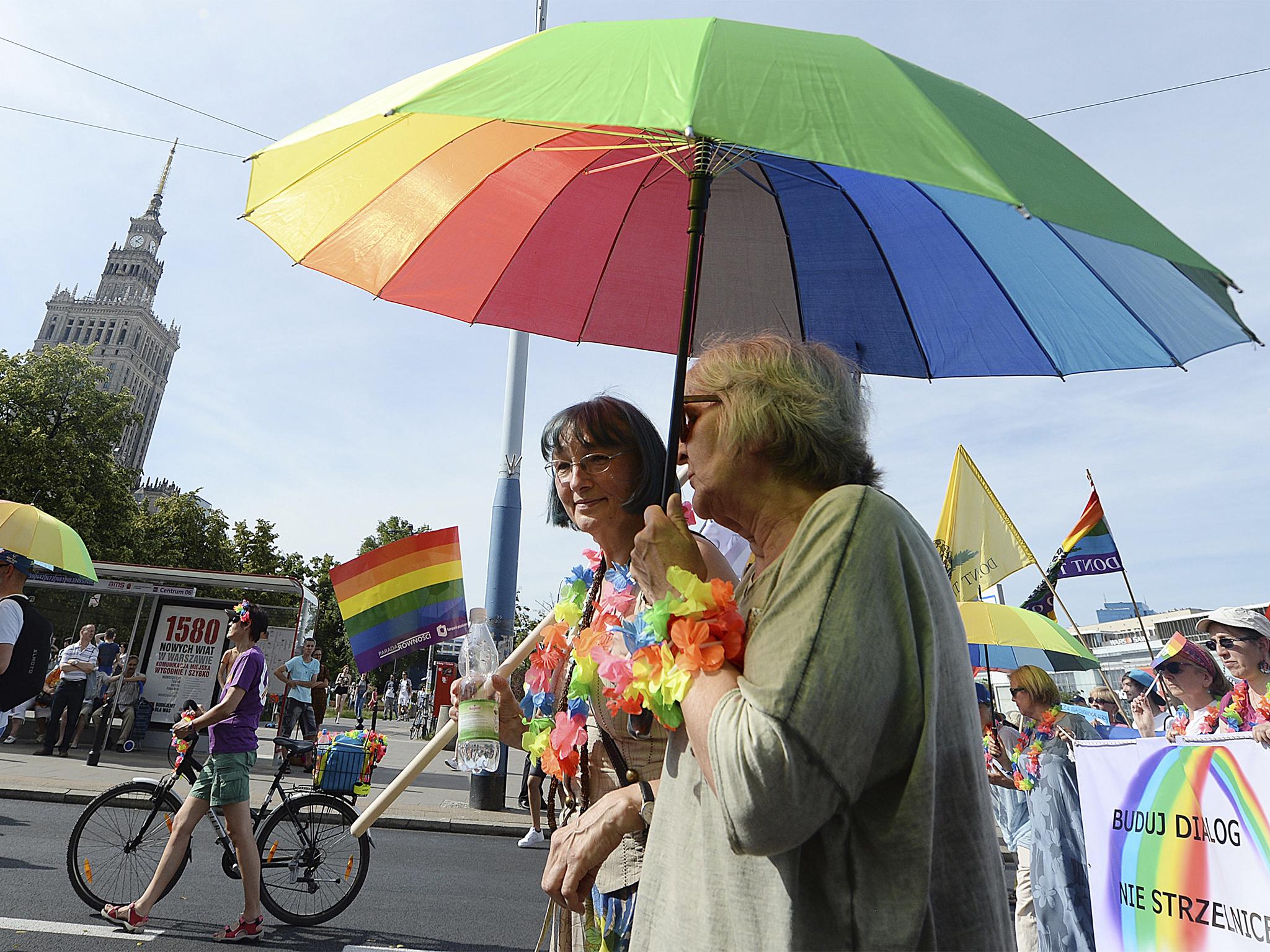Poland's Supreme Court rules against printer who refused to make banners for LGBT+ group
Top court upholds ruling which argued principle of equality before the law meant the printer did not have the right to withhold services to LGBT+ groups

Your support helps us to tell the story
From reproductive rights to climate change to Big Tech, The Independent is on the ground when the story is developing. Whether it's investigating the financials of Elon Musk's pro-Trump PAC or producing our latest documentary, 'The A Word', which shines a light on the American women fighting for reproductive rights, we know how important it is to parse out the facts from the messaging.
At such a critical moment in US history, we need reporters on the ground. Your donation allows us to keep sending journalists to speak to both sides of the story.
The Independent is trusted by Americans across the entire political spectrum. And unlike many other quality news outlets, we choose not to lock Americans out of our reporting and analysis with paywalls. We believe quality journalism should be available to everyone, paid for by those who can afford it.
Your support makes all the difference.Poland's Supreme Court has ruled against a print shop employee who refused to print banners for an LGBT+ business group because he did not want to "promote" the gay rights movement.
The country's top court said it was upholding the ruling of a lower court. The Regional Court in Lodz had argued the principle of equality before the law meant the printer did not have the right to withhold services from the LGBT Business Forum.
The case was brought to the Supreme Court by Zbigniew Ziobro, the justice minister and attorney general, who slammed Thursday's ruling as "against freedom."
"The Supreme Court has stood on the side of state violence in the service of the ideology of homosexual activists," Ziobro said.
The Campaign Against Homophobia, which gave legal support to the LGBT Business Forum, welcomed the ruling.
The decision comes as the European Union has been warning that Poland's judicial independence is under threat due to new laws that give the conservative ruling party, Law and Justice, greater power over court appointments.
A new law regulating the Supreme Court will take effect 3 July and it's not clear if the court will be as free in the future to make rulings against positions supported by the government.
The Polish case comes as similar cases have been brought in US courts. In the most high-profile case, the US Supreme Court sided with a Colorado baker who refused to make a wedding cake for a same-sex couple.
Jaroslaw Jaruga, a lawyer with the Helsinki Foundation for Human Rights, said there were parallels to the US case.
He said the Polish Supreme Court ruled that sexual orientation, race or other features of a person cannot be the basis for refusal to offer a service, but that if the nature of the service violates the entrepreneur's freedom of conscience, it could be.
"Therefore, any such refusal should be considered individually. As a result, sometimes freedom of conscience and religion will be a legitimate reason for the refusal to perform the service, and at other times may constitute a manifestation of unauthorized discrimination," Jaruga said.
Associated Press
Subscribe to Independent Premium to bookmark this article
Want to bookmark your favourite articles and stories to read or reference later? Start your Independent Premium subscription today.
Join our commenting forum
Join thought-provoking conversations, follow other Independent readers and see their replies
Comments